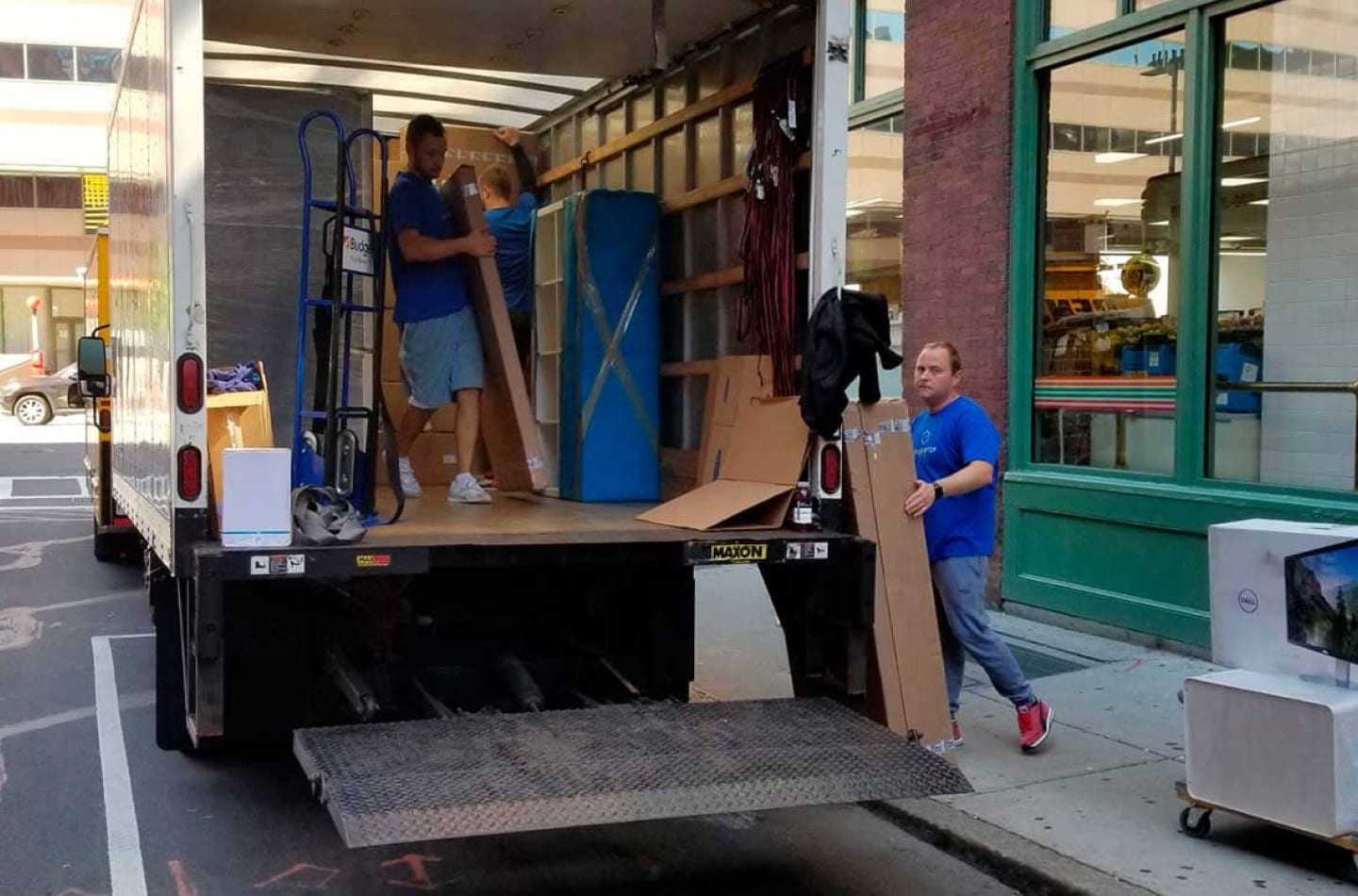It might be nerve-wracking to entrust your possessions to anyone as there are things you’d be devastated to lose, such as your memories, antiques, and items that remind you of the older generations of your family. Moving these valuables and entrusting your movers with their care might make you feel vulnerable. The easiest approach to avoid unpleasant surprises on moving day is to ask the moving company of your choice some proper questions before making a final decision. Your belongings will be in good hands with Step by Step Moving and Storage if you ask the right questions before your move. The more comprehensive you are when it comes to the questions to ask moving companies, the better. If you’ve never moved before or are unfamiliar with the moving and shipping industry, you may not know what questions to ask moving company. Check out the following list of questions to ask movers you contact for an estimate. Don’t be afraid to ask as many questions as possible just to make things clear.
WHAT TO ASK MOVING COMPANY BEFORE HIRING IT?
Question 1. Are they going to perform an “in-home estimate” for me? Customers may get in-home estimates from such trustworthy movers as Step by Step Moving and Storage. One of the benefits of having someone come and look at your house is the ability to identify any obstacles that might make the relocation more difficult or expensive. Any issues with delivery at the new location can be identified either by having them visit or speak with you. When you ask questions, make sure you’re taking notes or ask the company to provide that information in a written form. Dishonest movers may try to add additional charges during your relocation if there was no in-home estimate carried out beforehand. Find out whether there are any hidden fees, for instance:
- For using the stairs;
- Especially large or difficult items;
- Furniture disassembly and reassembly;
- Additional equipment and moving supplies that are going to be used;
- Whether moving a basement, garage, attic, or shed is included;
- Whether there is a list of additional fees that may be incurred, etc.
Just remember to get it all down on paper! Question 2. What equipment are they going to use? Movers who specialize in all kinds of moves employ specially equipped trucks, some of which have ramps and lifts for easier loading and unloading of large items. It may seem self-evident, but you’d be surprised how many moving vans don’t have those. There’s a good risk your belongings may be harmed if they have to be lifted onto a high deck. The side door of a moving vehicle is frequently used to load from the street. In addition to saving time, this device may also be used in confined locations with relative ease. Ask whether your movers are equipped with adequate dollies for going up and down the stairs. Heavy goods may be carried with the help of shoulder straps. Question 3. How many people will be engaged in the move? Usually, when performing an in-home estimate, a representative of the moving company of your choice has to ask and record how many rooms there are in your apartment or house, how much stuff you have overall, and provide you with a number of people who will be engaged in your move. Question 4. Does the moving company offer packing/unpacking services? Additional costs, which include packing/unpacking, appliance disconnection, and crating are sometimes referred to as packing services. These fees are tacked on to your standard relocation expenses. Ask what packing services are available from the moving company of your choice and what you need to do before the big day. If you order packing services, this might save you from the moving insanity if you’re in a rush to relocate. Question 5. Can loading and unloading services be provided? Before you choose a moving company, ask who will be in charge of loading and unloading the truck. Reliability and certain skills are required to move delicate and heavy items. Ask whether your moving company provides a team of expert movers who are up to the task and physically capable of transporting all of the items to your new house securely.
Question 6. If the moving truck arrives before I do, will I be charged extra?
When thinking of what questions to ask a moving company, be sure to inquire about the arrival date. Whether you’re moving within the city, state, or across the country, it’s a good idea to find out when your possessions will arrive at your new residence. It is possible for local deliveries to arrive the same day, but for bigger distances, other considerations come into play. Ask about the availability of assured pick-up and delivery services, as well as any associated storage or warehousing costs.
Question 7. What paperwork will be needed?
When you ask questions about moving, it’s a good idea to bring up the topic of your obligations, contracts, and relocation schedule. To ensure a smooth move, speak with your company to learn about the paperwork you’ll be required to review, fill in, and sign before the big day.
Question 8. What about the moving timeline?
When cooperating with movers, you need to ask them when your items will be picked up and delivered. As a result, long-distance moves are more time-consuming than local ones, especially if your goods will be traveling in a truck with others. A clear notion of what essentials you should have on hand in case delivery is delayed due to bad weather or other challenges is critical when you hire movers.
Question 9. What payment options are available?
It’s a good idea to stay away from any moving business that only accepts cash as payment. Credit and debit cards, as well as other popular options, should be accepted by all reputable companies. Make sure to ask about the payment methods beforehand.
Question 10. How are complaints and damage managed?
When you sign a contract, you always expect that everything will be fast, efficient, and trouble-free, and you’ll never have a reason to be dissatisfied with the services you get. Nevertheless, to stay on the safe side, you should also find out how complaints and difficulties are handled if something goes wrong. Make sure the movers you’ve chosen are transparent, so ask them to explain the procedure in detail. They may even provide you with some case studies of successfully resolved disputes.












